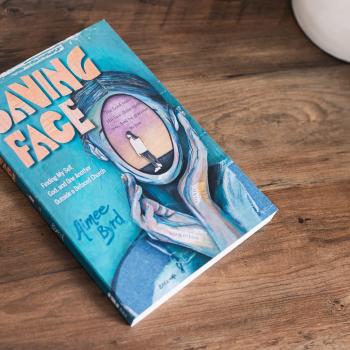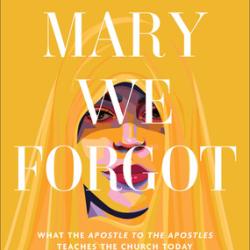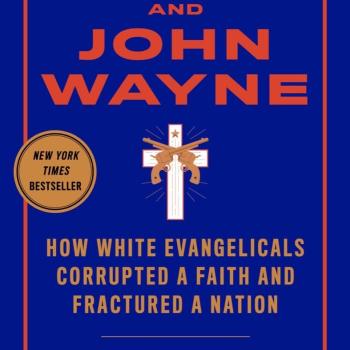Recently I was in charge of an event—inviting people to come, making sure the program went well, helping with logistics, promoting it, organizing speakers—and I forgot to think about childcare. I’m not a parent right now myself, but that isn’t an excuse. I had married couples on the program who were parents, and I hadn’t thought about how to be more hospitable or inclusive for families with kids. This isn’t just a matter of creating an event that is pleasant or easy for people to attend: morality and justice are attached to the question of who’s watching the kids.
Nadya Williams’s recent book Mothers, Children and the Body Politic was a welcome reminder that the community Jesus formed had full inclusion for those the Roman Empire eschewed. The Greco-Roman world valued those who were considered “productive” or who could be part of the military. The New Testament offers a different set of values. Williams reminds her readers that our modern world, with its emphasis on productivity and technical efficiency still needs the Word of God to remind them that the “least of these” need to always be included. In the community Jesus created, He wanted the children to be right there, along with their parents. If we think we are doing God’s good work in the world, but aren’t checking to see how it will be done alongside childcare, we are creating unjust realities for many in the world. We will end up excluding some people, or asking them to do double labor without even realizing it. Because whether we ask the question or not, the reality remains that our children need more from us than is often factored into our work for God and the world.
Further afield from the Christian tradition, Susanna Ferguson provoked my thinking about the role of women in democracy movements. In a recent podcast discussing her book Labors of Love: Gender, Democracy, and Capitalism in Modern Arab Thought, she argued that Arab women saw themselves as full participants in the democracy movements of the twentieth century. As with other women civil rights workers, they constantly negotiated their justice work with the real labor of childcare. Ferguson posits that as these women were writing and advocating for justice and equality within their communities, they had to remind the men that they were working with that the domestic sphere was part of their lives. In order to help with the wider communal work of democracy-making, Ferguson argues that the question of “Who’s Watching the Kids?” was a moral and ethical one.
Biblically speaking, both parents are vital for parenting. Many couples who form families like the idea of both parents being fully invested and involved in childrearing. It’s very important work for both mothers and fathers. However, all social science research would remind us that most of this work, well beyond the times that women’s bodies are required for infant growth and sustenance, is done by mothers. Sociologically speaking, the answer to “who’s watching the kids?” is women.
In the past, after the very earliest years of childhood, gender segregated parenting was common—boys working with fathers and girls with mothers. It has only been in the last couple hundred years that this work of women for all children has become romanticized, expected and institutionalized. This has been well studied as part of the Victorian ideals of domesticity and is understood to be a result of the separate spheres ideology that came with the Industrial Revolution. The changes in labor (focusing on a male-wage and working shifts where children weren’t allowed) shifted childcare almost entirely to women, made their work less valuable by the economics of the time, and created an ideology that made it morally riskier for women to labor for money. From a time in the pre-modern world where labor and childcare went hand in hand for both mothers and fathers, children were required to be excluded from the work of life that their families engaged in—unless they themselves were sent to the factories or the mines. The question of “who’s watching the kids” was taken for granted and moved out of the realm of what was considered to be the “important” work of the body politic—and even the Body of Christ.
Motherhood became romanticized, but the lip service women were given for doing this didn’t translate into real value for them or for children in society. Churches, increasingly full of women, created spaces for women to do the work of spiritual education in Sunday Schools. Any calling women might feel to do other work for the Kingdom of God beyond childcare required finding someone else to watch the kids, and this was rarely if ever the men or the fathers. The lack of fathers and men doing childcare in the past two hundred years resulted in a situation that impacted the ability of women to work for justice, for the gospel, and prevented men from being as fully engaged as they might want to be in parenting. The structures of the industrial and service economies with their focus on efficiency mean having to outsource childcare.
My mother-in-law ran a daycare in her home, and the parents she assisted so that they could do economic, gospel, or justice work without their children for some hours each week were delighted with her. She added great value to the lives of the children she mentored and to this day as those kids are well into adulthood, they and their parents continue to see her as someone who poured goodness into their lives. I have spent years as a nanny (which makes my forgetting childcare at the event I organized all the more bemusing), and I felt delight in coming alongside families, giving mothers and fathers time to do quiet reflective thinking or to go work on a project that it was too hard to do with pre-school children around. The question of who’s watching the kids needs to include more of us and have more value.
If we want women doing gospel work, justice work, labor for the world, we have to ask the question ‘who’s got the kids?’ People who are less in the weeds with childcare are themselves doing justice work when we come alongside families and release mothers, from the daily work to do the other things that God is calling them to. In my own church we have a cadre of folks who are single without children or married without children who regularly reach out to those who are parenting to support them by taking the kids on outings, babysitting in homes, offering events for parents to bring their children to. I advocate for the kids’ programs at church to be run by folks who are not currently parenting so that mothers (and it is still mostly mothers who work in the kids programing) can attend adult Bible studies and engage in worship with their peers. Childcare is valuable work and to show how valuable it is, more of us should be doing it and supporting those who need it. Look around you in your community: Who’s watching the kids? The answer to that question has moral implications for all of us.













